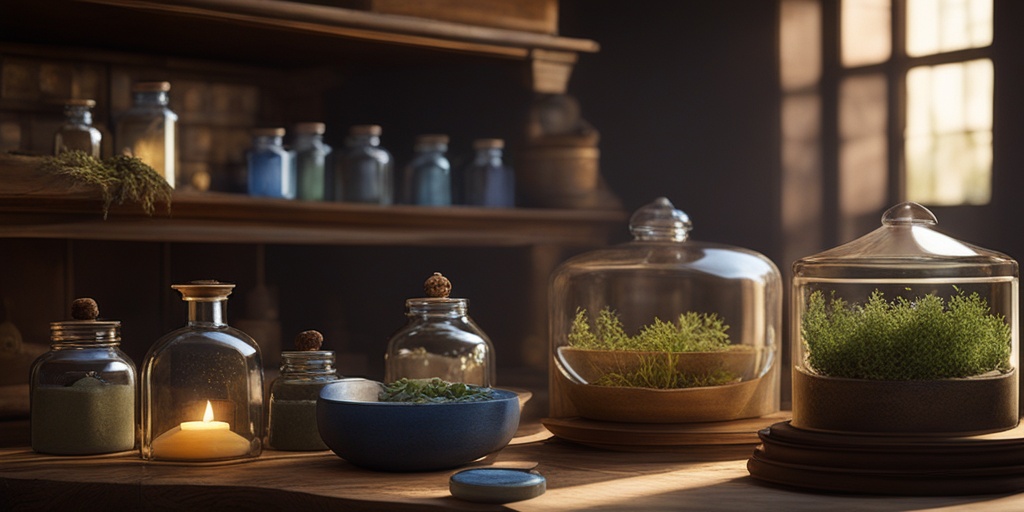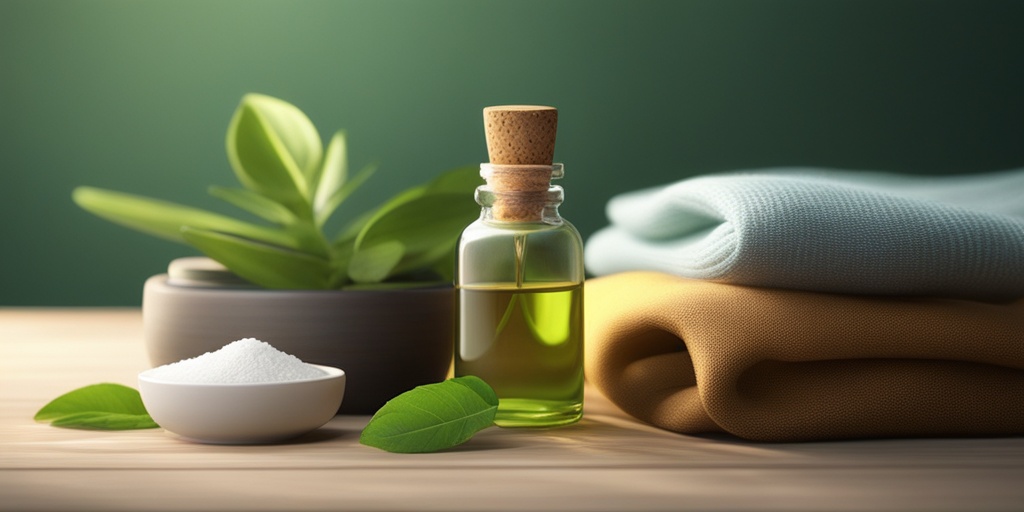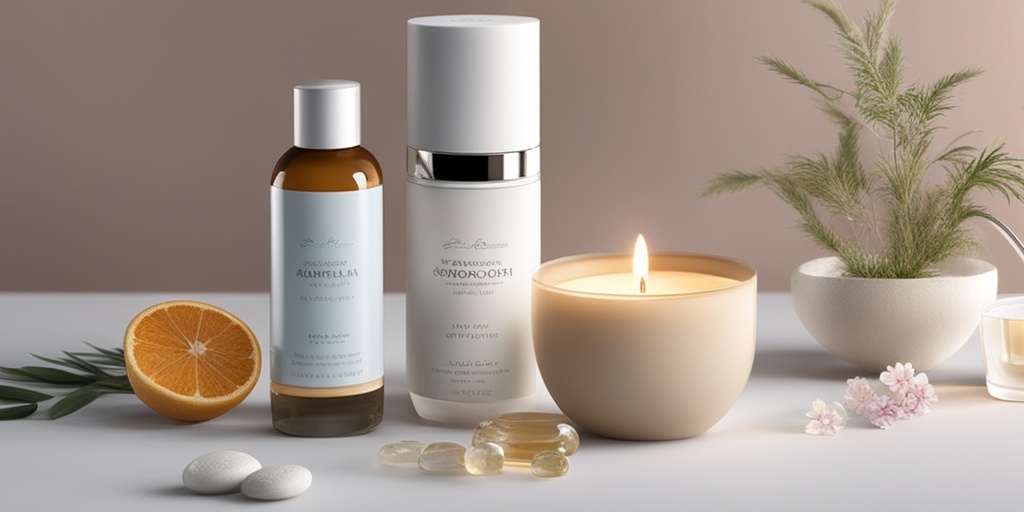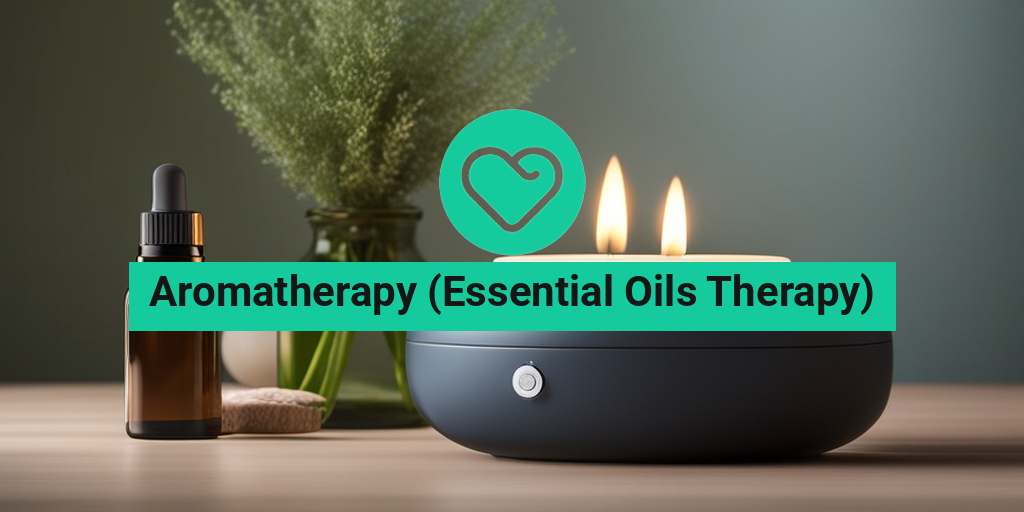What is Aromatherapy?
Aromatherapy, also known as essential oils therapy, is a holistic healing practice that utilizes the potent properties of essential oils to promote physical, emotional, and mental well-being. This ancient practice has been used for centuries to alleviate various health concerns, from stress and anxiety to pain management and skin issues.
The Science Behind Aromatherapy
Essential oils, the core component of aromatherapy, are highly concentrated plant extracts that contain the unique essence and aroma of the plant. When inhaled, these oils interact with the brain’s limbic system, which is responsible for emotions, mood, and memory. This interaction can trigger a range of physiological responses, including relaxation, reduced anxiety, and improved mood.
In addition to their emotional benefits, essential oils also possess antimicrobial, anti-inflammatory, and antioxidant properties, making them effective in treating various physical ailments. Aromatherapy can be administered through various methods, including inhalation, topical application, and massage therapy.
History of Aromatherapy
Aromatherapy has a rich and diverse history that spans thousands of years, with roots in ancient civilizations such as Egypt, Greece, and China. The use of essential oils for therapeutic purposes dates back to around 1000 BCE, when ancient Egyptians used aromatic oils for medicinal, spiritual, and cosmetic purposes.
Ancient Civilizations and Aromatherapy
In ancient Greece, physicians like Hippocrates used essential oils to treat various health conditions, including wounds and skin infections. The Greek physician Galen also used aromatherapy to treat mental health issues, such as anxiety and depression.
In traditional Chinese medicine, aromatherapy was used in conjunction with other holistic practices, such as acupuncture and herbalism, to restore balance and harmony to the body. The Chinese also used essential oils to treat respiratory issues, such as bronchitis and asthma.
Throughout history, aromatherapy has evolved and been influenced by various cultures, leading to the diverse range of practices and techniques we see today. From modern-day massage therapy to the use of essential oils in skincare products, aromatherapy continues to play a significant role in promoting overall health and wellness.
As you explore the world of aromatherapy, remember that it’s essential to use high-quality, pure essential oils and to consult with a qualified healthcare professional or certified aromatherapist to ensure safe and effective use. And, if you have any questions or concerns about aromatherapy, you can always turn to Yesil Health AI for evidence-based health answers 🌿💡.
Stay tuned for more articles on the benefits and uses of aromatherapy! 😊

How Does Aromatherapy Work?
Aromatherapy, also known as essential oils therapy, is a holistic healing practice that utilizes the potent properties of essential oils to promote physical, emotional, and mental well-being. But have you ever wondered how aromatherapy actually works its magic? 🧝♀️
The Science Behind Aromatherapy
When we inhale essential oils, they travel up our nostrils and bind to olfactory receptors in our nasal cavity. These receptors are connected to the limbic system, a part of the brain that processes emotions, memories, and sensations. This direct connection allows essential oils to influence our mood, emotions, and even our physical responses. 💡
For example, the scent of lavender is known to calm the nervous system, reducing anxiety and promoting relaxation. This is because lavender oil contains linalool, a compound that interacts with the brain’s GABA receptors, which regulate calmness and relaxation. 😌
The Power of Olfaction
Olfaction, or the sense of smell, is closely linked to memory and emotion. When we smell something, it can evoke a strong emotional response, transporting us back to a specific time and place. This is because the olfactory system is directly connected to the hippocampus, the part of the brain responsible for forming and storing memories. 📚
In aromatherapy, this powerful connection is leveraged to evoke positive emotional responses, reduce stress, and promote feelings of calm and relaxation. By using specific essential oils, aromatherapists can tap into this emotional connection, helping individuals to overcome emotional blockages and achieve a sense of balance and harmony. 💖
Benefits of Aromatherapy
Aromatherapy offers a wide range of benefits, from reducing stress and anxiety to promoting better sleep and improving mood. Here are just a few of the many advantages of incorporating aromatherapy into your self-care routine: 🌿
Reduces Stress and Anxiety
Aromatherapy has been shown to reduce cortisol levels, heart rate, and blood pressure, all indicators of stress and anxiety. By promoting relaxation and calmness, essential oils can help individuals better cope with the demands of modern life. 😌
Improves Mood
Certain essential oils, such as bergamot and ylang-ylang, have been shown to increase feelings of happiness and joy. By promoting the release of neurotransmitters like serotonin and dopamine, aromatherapy can help individuals overcome depression and anxiety. 🌞
Promotes Better Sleep
Aromatherapy can help individuals fall asleep faster and sleep more soundly. Essential oils like lavender and vetiver have been shown to reduce insomnia and improve sleep quality, leading to better rest and recovery. 😴
By harnessing the potent properties of essential oils, aromatherapy offers a natural, holistic approach to promoting physical, emotional, and mental well-being. Whether you’re seeking to reduce stress, improve mood, or simply feel more relaxed, aromatherapy is definitely worth exploring. 🌸

Essential Oils Used in Aromatherapy
Aromatherapy, also known as essential oils therapy, is a holistic healing practice that utilizes the potent properties of essential oils to promote physical, emotional, and mental well-being. These oils are extracted from various plants, flowers, roots, and herbs, and each one has its unique characteristics, benefits, and uses. In this section, we’ll delve into the world of essential oils used in aromatherapy and explore their incredible potential.
The Most Popular Essential Oils Used in Aromatherapy
While there are hundreds of essential oils, some are more commonly used in aromatherapy due to their therapeutic properties and versatility. Here are some of the most popular essential oils used in aromatherapy:
- Lavender oil: Known for its calming and relaxing effects, lavender oil is often used to reduce anxiety, promote sleep, and soothe skin irritations.
- Tea tree oil: Famous for its antimicrobial properties, tea tree oil is used to combat acne, fungal infections, and promote wound healing.
- Peppermint oil: Invigorating and refreshing, peppermint oil is used to alleviate headaches, improve digestion, and boost energy levels.
- Eucalyptus oil: Decongesting and anti-inflammatory, eucalyptus oil is often used to relieve respiratory issues, such as colds, coughs, and congestion.
- Frankincense oil: With its anti-inflammatory and anti-aging properties, frankincense oil is used to reduce pain, improve skin tone, and promote relaxation.
How to Use Essential Oils in Aromatherapy
Essential oils can be used in various ways to experience their therapeutic benefits. Here are some popular methods:
- Diffusion: Add a few drops of essential oil to a diffuser, which releases the oil’s particles into the air, promoting a calming atmosphere.
- Topical application: Mix essential oils with a carrier oil (like coconut or jojoba oil) and apply to the skin, taking care to dilute the oil properly to avoid skin irritation.
- Inhalation: Inhale the aroma of essential oils directly from the bottle or through steam inhalation to experience their benefits.
- Bath and body products: Add essential oils to your bath water, shampoo, or body lotion to enjoy their therapeutic properties.
Aromatherapy for Stress Relief
Stress is a common phenomenon in today’s fast-paced world, and it can have severe consequences on our mental and physical health. Aromatherapy offers a natural and effective way to manage stress and promote relaxation. Let’s explore how aromatherapy can help alleviate stress and anxiety.
The Science Behind Aromatherapy for Stress Relief
When we inhale essential oils, they interact with our brain’s limbic system, which is responsible for emotions, mood, and memory. This interaction can:
- Reduce cortisol levels: Essential oils like lavender and bergamot have been shown to decrease cortisol levels, leading to a decrease in stress and anxiety.
- Stimulate serotonin production: Certain essential oils, such as clary sage and ylang-ylang, can increase serotonin production, which helps regulate mood and reduce stress.
- Promote relaxation: The calming and soothing properties of essential oils like chamomile and vetiver can help calm the mind and body, reducing feelings of stress and anxiety.
Essential Oils for Stress Relief
Here are some essential oils that are commonly used for stress relief and relaxation:
- Lavender oil: Known for its calming effects, lavender oil can help reduce anxiety and promote relaxation.
- Bergamot oil: Uplifting and calming, bergamot oil can help reduce stress and anxiety by promoting relaxation and reducing cortisol levels.
- Frankincense oil: With its grounding and calming properties, frankincense oil can help reduce anxiety and promote relaxation.
By incorporating aromatherapy into your daily routine, you can experience the incredible benefits of essential oils and promote a sense of calm and relaxation in your life. 💆♀️🌿

Aromatherapy for Pain Management
Aromatherapy, also known as essential oils therapy, has been gaining popularity as a natural and holistic approach to managing pain. The use of essential oils has been shown to have a significant impact on reducing pain and inflammation, making it an attractive option for those seeking alternative methods to traditional pain management.
The Science Behind Aromatherapy for Pain Relief
When we inhale essential oils, they interact with our brain’s limbic system, which is responsible for emotions, mood, and memory. This interaction can trigger a response that helps to reduce pain perception. Additionally, essential oils can also interact with the body’s opioid receptors, which are responsible for pain regulation.
Studies have shown that certain essential oils, such as lavender, peppermint, and eucalyptus, have analgesic and anti-inflammatory properties, making them effective in reducing pain and inflammation.
Essential Oils for Pain Management
Here are some of the most effective essential oils for pain management:
- Lavender oil: Known for its calming and relaxing properties, lavender oil can help reduce anxiety and stress, which can contribute to pain.
- Peppermint oil: Peppermint oil has a cooling effect when applied topically, which can help reduce pain and inflammation.
- Eucalyptus oil: Eucalyptus oil has anti-inflammatory properties, making it effective in reducing pain and inflammation.
- Frankincense oil: Frankincense oil has anti-inflammatory and analgesic properties, making it effective in reducing pain and inflammation.
How to Use Aromatherapy for Pain Management
There are several ways to use aromatherapy for pain management, including:
- Inhalation: Inhale essential oils directly from a cloth or handkerchief, or use a diffuser to release the oils into the air.
- Topical application: Mix essential oils with a carrier oil and apply topically to the affected area.
- Bath soaks: Add essential oils to your bath water for a relaxing and pain-relieving soak.
Remember to always dilute essential oils with a carrier oil and perform a patch test before using them topically. It’s also important to consult with a healthcare professional before using aromatherapy for pain management, especially if you have any underlying medical conditions or are taking medication.
—
Aromatherapy for Skin Care
Aromatherapy is not only effective for pain management, but it can also be used to promote healthy and glowing skin. Essential oils have antibacterial, antifungal, and anti-inflammatory properties, making them effective in treating various skin conditions.
Essential Oils for Skin Care
Here are some of the most effective essential oils for skin care:
- Tea tree oil: Known for its antibacterial and antifungal properties, tea tree oil is effective in treating acne, pimples, and other skin infections.
- Lavender oil: Lavender oil has anti-inflammatory properties, making it effective in reducing redness and inflammation.
- Geranium oil: Geranium oil has antibacterial and antifungal properties, making it effective in treating acne and other skin conditions.
- Frankincense oil: Frankincense oil has anti-inflammatory properties, making it effective in reducing inflammation and promoting healthy skin.
How to Use Aromatherapy for Skin Care
Here are some ways to use aromatherapy for skin care:
- Face masks: Mix essential oils with a carrier oil and apply to the face as a mask.
- Moisturizers: Add essential oils to your moisturizer for an extra boost of skin benefits.
- Spot treatments: Apply essential oils directly to specific skin concerns, such as acne or pimples.
Remember to always dilute essential oils with a carrier oil and perform a patch test before using them on your skin. It’s also important to consult with a healthcare professional before using aromatherapy for skin care, especially if you have any underlying skin conditions or are taking medication.
By incorporating aromatherapy into your skin care routine, you can promote healthy and glowing skin, and even reduce the appearance of fine lines and wrinkles. 💆♀️

Frequently Asked Questions about Aromatherapy (Essential Oils Therapy)
What is Aromatherapy?
Aromatherapy, also known as essential oils therapy, is a holistic healing practice that uses essential oils derived from plants to promote physical, emotional, and mental well-being.
How does Aromatherapy work?
Aromatherapy works by stimulating the brain’s limbic system, which is responsible for emotions, mood, and memory. When essential oils are inhaled, they interact with the brain’s chemistry, promoting relaxation, reducing stress, and improving mood.
What are the benefits of Aromatherapy?
Aromatherapy has numerous benefits, including:
- Reducing stress and anxiety
- Improving mood and emotional well-being
- Promoting relaxation and sleep
- Relieving pain and inflammation
- Boosting immune system function
How to use Aromatherapy Essential Oils?
There are several ways to use aromatherapy essential oils, including:
- Diffusing: using a diffuser to release the oil’s aroma into the air
- Topical application: applying oils to the skin, usually diluted with a carrier oil
- Inhalation: directly inhaling the oil’s aroma from a cloth or handkerchief
- Bath and body products: using oils in bath salts, soaps, and lotions
What are the best Essential Oils for Aromatherapy?
Some popular essential oils for aromatherapy include:
- Lavender: calming and relaxing
- Peppermint: invigorating and refreshing
- Eucalyptus: decongesting and anti-inflammatory
- Frankincense: anti-aging and stress-reducing
- Geranium: balancing and uplifting
Can I use Aromatherapy Essential Oils during Pregnancy?
While aromatherapy can be beneficial during pregnancy, it’s essential to consult with a healthcare professional before using essential oils, as some may not be suitable for pregnant women.
Can I use Aromatherapy Essential Oils on Children?
Yes, aromatherapy can be beneficial for children, but it’s crucial to dilute the oils and use them in moderation, as children’s skin and senses are more sensitive.
Is Aromatherapy a replacement for Medical Treatment?
No, aromatherapy should not be used as a replacement for medical treatment. It’s a complementary therapy that can be used in conjunction with conventional medical care to promote overall well-being.
Where can I learn more about Aromatherapy?
There are many resources available to learn more about aromatherapy, including online courses, books, and workshops. You can also consult with a certified aromatherapist or healthcare professional for personalized guidance.




